Top 10 best FIFA football team in the world
The FIFA World Rankings are considered an important measure of success and excellence for international football teams. Although many teams have risen to the top for long periods of time, determining the best FIFA football team in the world is not based on numbers alone. It requires considering historical achievements, consistency in performance, the contributions of iconic players, and their influence on the international stage. In this article, Premiumsoccertips.net will delve into the concept of the best team according to FIFA and introduce the leading candidates for this title.
Best football team in the world FIFFA ranking
1. Argentina
Argentina have established themselves as the world’s leading team through talent, teamwork and a proud heritage. Their success was cemented by winning the 2022 FIFA World Cup, their third title after their triumphs in 1978 and 1986. This was a testament to the strength of the team, led by their outstanding captain Lionel Messi. This achievement not only brought Argentina back to the top but also cemented Messi’s reputation as one of the greatest legends in football history.

Alongside Messi, young talents such as Julián Álvarez and Enzo Fernández have brought new life to the team, helping them maintain their strength in all competitions. Argentina’s style of play is a blend of top-notch technique, creativity and relentless fighting spirit. Their success is not only due to their playing strategy but also fueled by the passionate love of their fans. The deep bond between the team and its fans reflects a great footballing legacy, built by Diego Maradona and continued by Messi. Argentina is not only a story of triumph but also an icon that inspires millions of football lovers around the world.
2. France
The French national team is ranked second in the world, reflecting their remarkable stability and the depth of their squad. Les Bleus have maintained their ability to compete at the highest level for many years, affirming their position as one of the leading footballing powers. Winning the 2018 FIFA World Cup was a milestone, demonstrating the strength and cohesion of the team. Their runner-up finish at the 2022 tournament continues to demonstrate their resilience and tactical sophistication, making them a strong contender on every major stage.

France’s success is based on the brilliance of stars such as Kylian Mbappé, whose pace and excellent finishing ability make him a match-changer, along with the experience of Antoine Griezmann and the strength of Paul Pogba, who have played a key role in shaping the team’s flexible and well-organized playing style. France not only possess outstanding individual skills but also stand out thanks to their coordination and flexible tactical adjustment. The harmonious combination of physical strength and exquisite technique makes them a team that is difficult to beat in any arena.
3. Spain
Spain’s third place in the world marks a remarkable return after a challenging transition period. Known for their superb ball control, Spain have redefined modern football through an engaging style of play that both captivates spectators and terrifies opponents. This resurgence has been the result of striking the perfect balance between maintaining their signature tiki-taka philosophy and harnessing the energy of a talented young generation.

Spain’s golden age, from 2008 to 2012, saw them dominate the game with two consecutive UEFA European Championships and the 2010 FIFA World Cup. Although the team struggled after their glory days, under the guidance of Luis de la Fuente they have gradually regained their position on the international stage. A wave of youth brought in by talents like Pedri, Gavi and Rodri has breathed new life into the team, re-imagining legends like Xavi and Iniesta. Their combination of technical flair and composure has sparked hopes of a bright future for Spanish football.
4. England
England’s journey on the international stage has been a tale of mixed glory and heartbreak. Currently ranked fourth in the world, the Three Lions show great potential and a fierce determination. The team has undergone an impressive transformation in recent years, reflected in outstanding performances at major tournaments. A run to the semi-finals of the 2018 World Cup revived national pride, while a narrow defeat to Italy in the Euro 2020 final proved their ability to compete at the highest level.
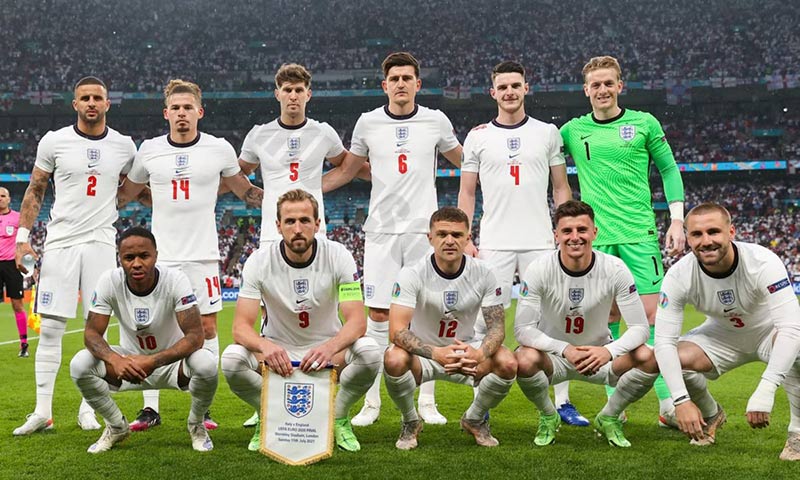
England’s rise has been built on an ideal blend of seasoned veterans and talented youngsters. Harry Kane, with his sharp goalscoring ability and irreplaceable leadership, is the mainstay of the attack, while young talents such as Bukayo Saka and Jude Bellingham bring creativity and vitality to the squad. This perfect blend of youth and experience is enhanced by the Premier League, one of the world’s top leagues, which fosters the development of top stars and provides a solid foundation for the national team.
5. Brazil
Brazil, the “kings of football”, have carved out an unparalleled legacy on the international stage, cemented by five FIFA World Cup titles. This achievement not only demonstrates their global dominance but also celebrates their artistic style of play. For decades, the “Samba Kings” have captivated fans with their creativity, outstanding technique and inspired play that exemplifies the pure spirit of the game. The golden era of titles in 1958, 1962, 1970, 1994 and 2002 cemented Brazil as the epitome of footballing excellence.
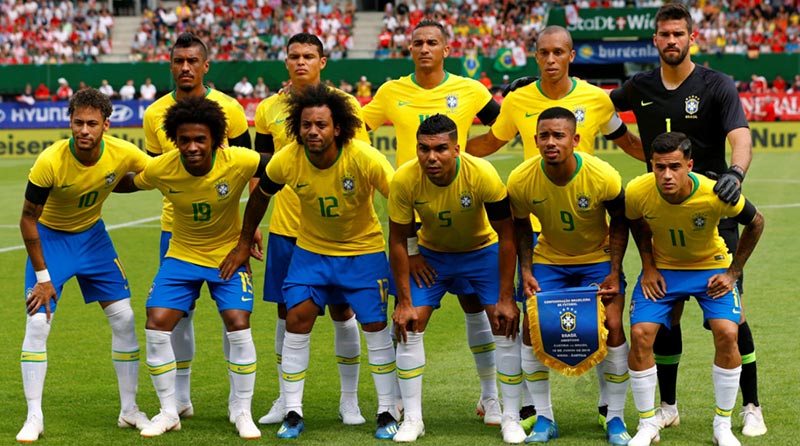
Today, players like Neymar, Vinícius Júnior and Alisson Becker continue the glorious tradition, providing the perfect blend of individual talent and team spirit. Brazil’s attacking philosophy, characterised by fluid movement and technical prowess, remains a defining feature, captivating audiences worldwide. The adherence to this innovative style of play has not only helped Brazil maintain its legacy, but also cement its place in the hearts of fans around the world.
6. Belgium
Belgium have established themselves as one of the world’s top teams, thanks to the brilliance of a golden generation of world-class stars such as Kevin De Bruyne, Romelu Lukaku and Thibaut Courtois. This generation has taken the national team to new heights, with third place at the 2018 World Cup, the best result in Belgian football history, proving their ability to compete with the best teams on the planet. The combination of technical excellence, rich experience and excellent tactical thinking has made Belgium a formidable force on the international stage.
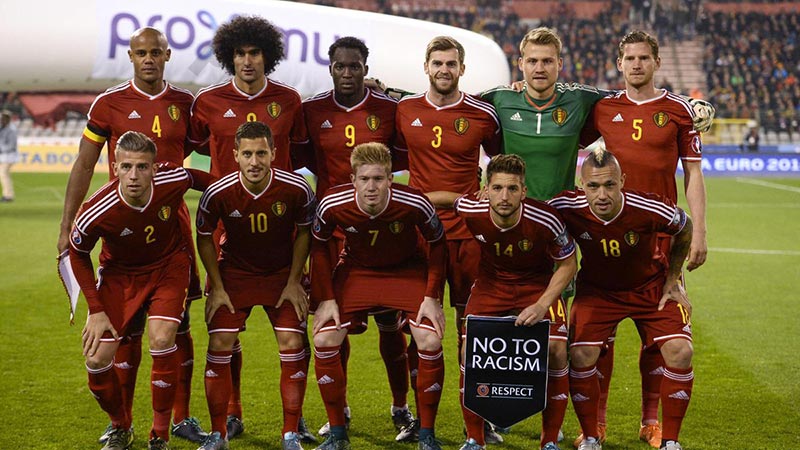
However, as the pillars of the golden generation gradually pass their prime, Belgium are facing the challenge of finding the next generation capable of inheriting and maintaining their position. Discovering, training and developing young talent will play a key role in ensuring the legacy of the current squad continues, helping Belgium continue to maintain its position among the world’s elite.
7. Netherlands
The Netherlands, long associated with the revolutionary philosophy of Total Football, have cemented their place among the world’s elite. Characterised by a fluid and fluid style of play, the Dutch national team has always stood out for its technical superiority and tactical innovation, elements that are deeply ingrained in their footballing culture. Although they have never won the World Cup, they have reached the final three times (1974, 1978, 2010), demonstrating their competitive spirit and tenacity.
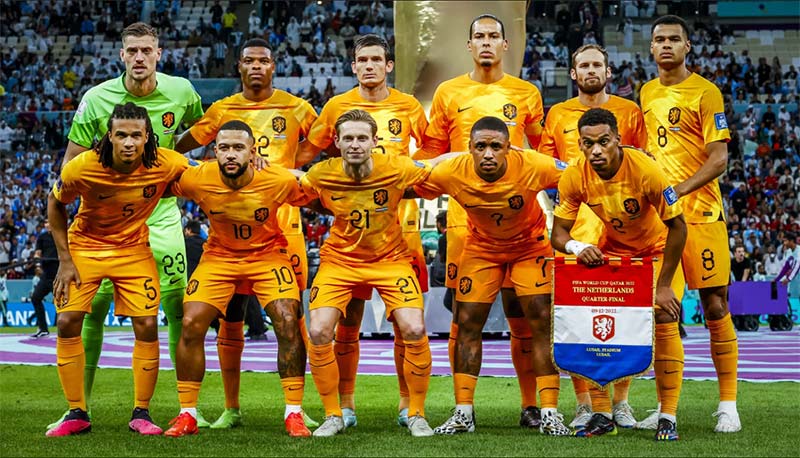
Under the guidance of Ronald Koeman, the current team represents the perfect blend of experience and youth. Veterans such as Virgil van Dijk bring stability and longevity, while young stars such as Cody Gakpo inject vitality and creativity into the squad. True to their footballing heritage, the Netherlands continue to focus on adaptability and a highly technical style of play, ensuring that their distinctive brand of football retains global appeal and influence.
8. Portugal
Portugal have established themselves as one of the world’s top teams, with the leadership and prodigious talent of Cristiano Ronaldo continuing to be a key source of inspiration for the team. Together with his stellar team-mates, Portugal have risen to prominence on the international stage. Notable successes such as winning Euro 2016 and the 2019 UEFA Nations League have cemented their place as one of Europe’s best sides.
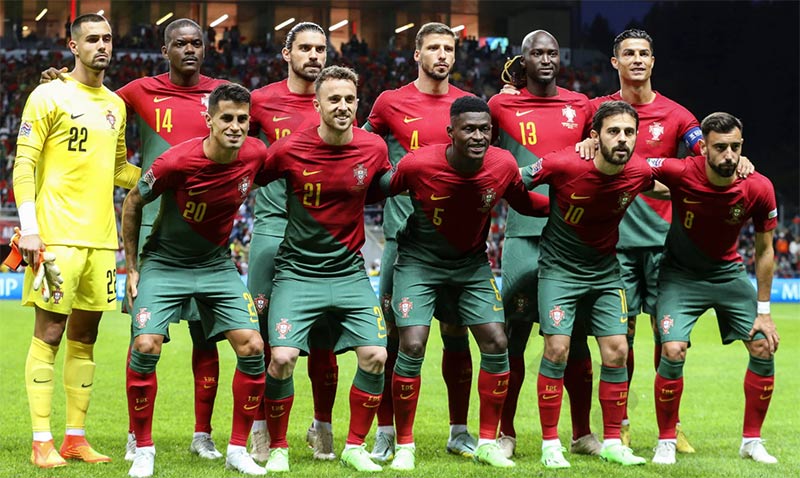
Although Ronaldo remains the star man in attack, the emergence of talents such as Bruno Fernandes, Bernardo Silva and João Félix ensures that Portugal’s future continues to be bright. The team combines tactical rigour with individual creativity, making them a formidable and unpredictable opponent on the international stage. With a mix of experience and young talent, Portugal remain a bright prospect on all fronts.
9. Colombia
Colombia’s position in the top 10 of the FIFA world rankings is a testament to their rise to international prominence. Their combination of a strong attacking style and solid defence has seen them achieve success in Copa América and World Cup qualifying, cementing their status as a formidable contender in South American football. Stars such as James Rodríguez, Luis Díaz and David Ospina have been instrumental in this success, bringing not only skill but leadership on the pitch.
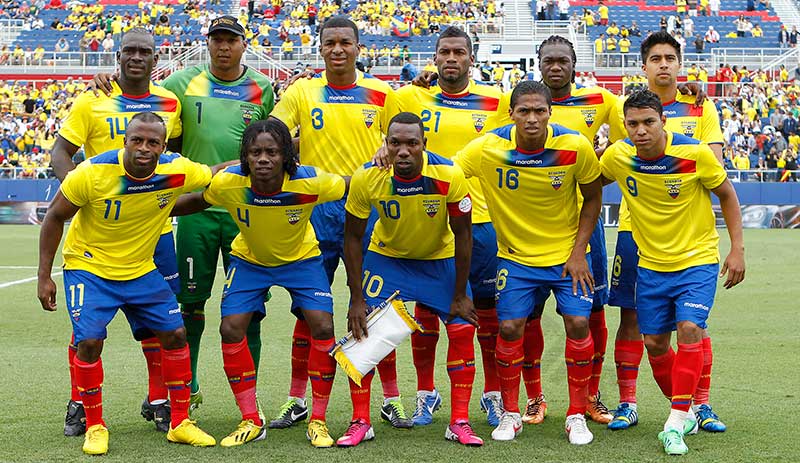
Despite their impressive record in qualifying and regional tournaments, Colombia have struggled to maintain consistency at major international tournaments. Converting their potential into success at major tournaments remains a difficult task, but with the talent and determination of their players, Colombia continue to look to a bright future.
10. Italy
Italy’s return to the top 10 of the FIFA rankings is a clear sign of the impressive recovery of the once world-dominating team. After a difficult period, victory at Euro 2020 has helped reaffirm Italy’s status as a footballing powerhouse, demonstrating their resilience and ability to overcome challenges. This success adds to their legendary legacy, with four World Cup wins in 1934, 1938, 1982 and 2006, cementing Italy’s place among the most successful teams in history.
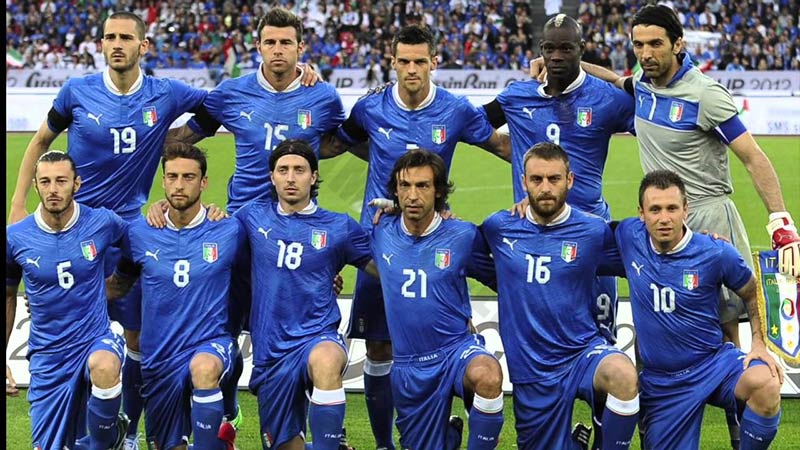
Looking ahead, a new generation of Italian players, including Gianluigi Donnarumma, Marco Verratti and Federico Chiesa, are emerging as key stars. These talents represent a bright future for the Azzurri, and their ability is helping to fuel the team’s ambitions to continue competing at the pinnacle of world football.
Conclusion
The list above showcases the best FIFA teams in the world, names that fans are familiar with. Each team in the top 10 possesses its own strengths and playing styles, contributing to the richness of global football. As these nations continue to compete for the top spot, fans around the world will witness memorable moments that create the outstanding appeal and appeal of the king of sports.








